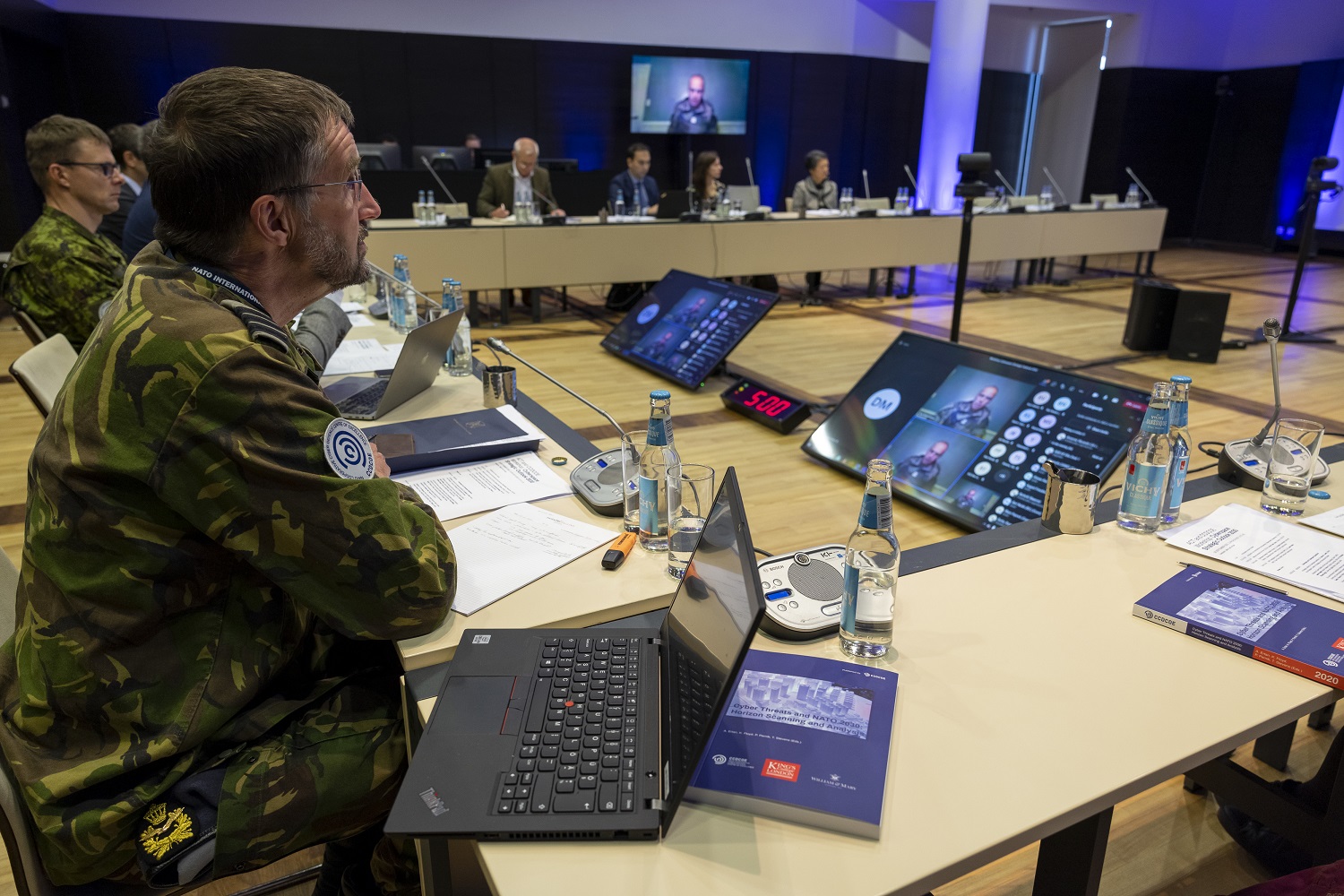NATO Cooperative Cyber Defence Centre of Excellence (CCDCOE) in cooperation with the Allied Command Transformation (ACT) hosted a Workshop “Cyberspace Strategic Outlook 2030” on 28 September 2021 in Tallinn, Estonia. The workshop gathered almost one hundred participants on-site and virtually from NATO organisations, government authorities, armed forces, academia, and industry.
The workshop focused on the three overarching themes: future cyberspace operations in the multidomain environment; strategic thinking and tactical innovations of key cyberspace opponents and non-state actors, including information warfare and hybrid threats; and political, military-strategic and military-operational implications to NATO.
The workshop featured distinguished scholars from Europe and the United States, among others Dr James A. Lewis, Senior Vice President, Center for Strategic and International Studies, Dr Samantha Ravich, Chairman of Center on Cyber and Technology Innovation and Transformative Cyber Innovation Lab, Foundation for Defence of Democracies, Virpratap Vikram Singh, Cyber and Digital Fellow, Columbia | SIPA, Franz-Stefan Gady, Research Fellow, International Institute for Strategic Studies, Laura Brent, Senior Fellow, Center for a New American Security, Justin Sherman, Non-resident Fellow, Atlantic Council, Jānis Sārts, Director, NATO Strategic Communications Centre of Excellence.
Sessions were moderated by Dr Tim Stevens, Senior Lecturer in Global Security, Head of Cyber Security Research Group, Department of War Studies, King’s College London, Kadri Kaska, Head of Law Branch, CCDCOE, and Dr Melissa K. Griffith, Senior Program Associate, the Woodrow Wilson International Center for Scholars, and Adjunct Assistant Professor at Georgetown’s Center for Security Studies.
ACT representatives gave overview of Cyberspace Strategic Foresight Analysis and NATO Warfighting Capstone Concept; Chelsey Slack, Deputy Head of the Cyber Defence Section at NATO Headquarters, presented the NATO’s 2021 cyber defence policy and future policy developments until 2030, and John Robert Gwinnup, Cyber Threat Intelligence Analyst, NATO Intelligence Fusion Centre, talked about the ways to improve cyber threat intelligence to support NATO. The workshop benefited from participants’ contribution at the breakout room discussions.
CCDCOE will publish a collection of papers presented at the workshop in the end of 2021. Meanwhile, all inputs collected during the workshop will feed ACT’s on-going cyberspace warfare development activities. Earlier this year, CCDCOE published an edited volume on cyber threats and horizons scanning and analysis.

